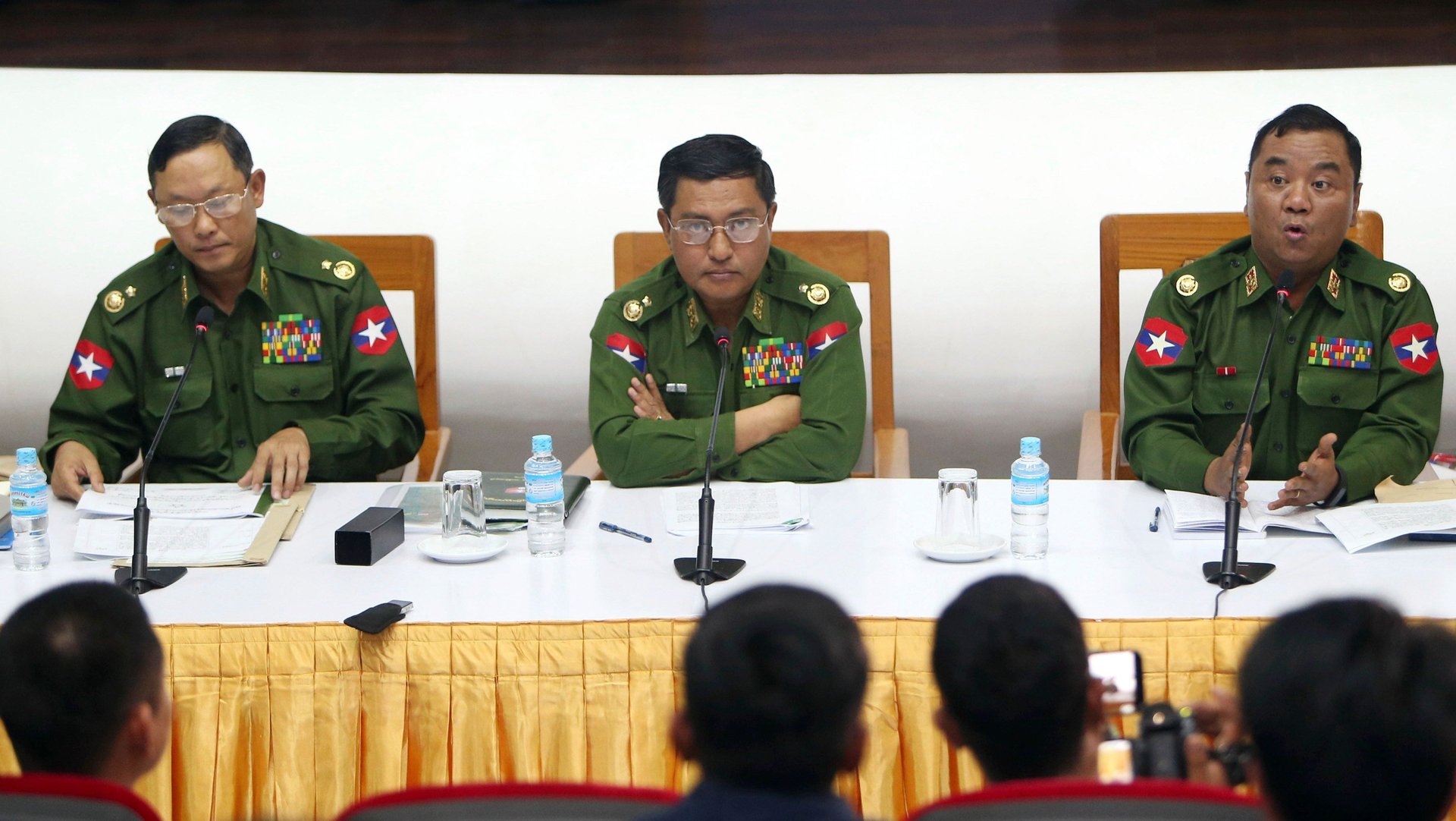Facebook banned armed groups that fight against the military in Myanmar
Facebook has banned four insurgent groups in Myanmar that oppose the country’s military, wading deeper into a conflict it has been accused of fueling.


Facebook has banned four insurgent groups in Myanmar that oppose the country’s military, wading deeper into a conflict it has been accused of fueling.
The company said in a blog post on Tuesday, Feb. 5, that it was designating four groups as “dangerous organizations,” thereby banning their pages, and “all related praise, support and representation.” The groups are the Arakan Army, the Myanmar National Democratic Alliance Army, Kachin Independence Army and the Ta’ang National Liberation Army.
They are so-called “ethnic armed organizations” who fight against the country’s powerful military, which both the US government and the United Nations say has engaged in ethnic cleansing of the Rohingya Muslim minority.
The Arakan Army, for example, claims to represent the Rakhine people, an ethnic minority in the country’s west. NPR recently reported that the Arakan Army had been clashing with government forces in recent weeks, leading to more than two dozen deaths among the combatants, and the displacement of thousands of people.
“There is clear evidence that these organizations have been responsible for attacks against civilians and have engaged in violence in Myanmar, and we want to prevent them from using our services to further inflame tensions on the ground,” the company wrote in its blog post.
“The ethnic violence happening in Myanmar is horrific and we don’t want our services to be used to spread hate, incite violence or fuel tension on the ground,” Facebook also said. The United Nations said last year that Facebook turned into a “beast” in Myanmar, helping stoke hatred against the Rohingya, by allowing the spread of misinformation, propaganda, and content celebrating violence against the group.
Myanmar observers and activists in the country questioned Facebook’s rationale, saying the company’s ban appeared arbitrary, and would silence important voices in the country.
“We’re concerned that these bans are going to create a vacuum that, if not managed with care, could fuel disinformation,” Victoire Rio, an activist from the Myanmar Tech Accountability Network told Quartz in an email. “This is going to create a lot of confusion for journalists and political analysts here, who have relied on these pages for information.” For Facebook to be regarded as “fair and legitimate,” it needs to be more transparent in how it makes these decisions, he added.
“We recognize that the sources of ethnic violence in Myanmar are incredibly complex and cannot be resolved by a social media company, but we also want to do the best we can to limit incitement and hate that furthers an already deadly conflict,” the company added in its statement.